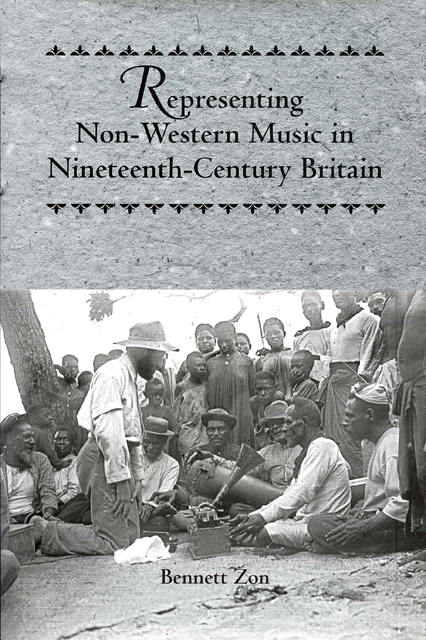Book contents
- Frontmatter
- Dedication
- Contents
- List of Illustrations
- Preface
- Acknowledgments
- Introduction Humanizing the Musical Savage: Orientalism and Racism in the History of British Ethnomusicology
- Part One Early Anthropological Influences
- Part Two Musicology in Transition to Evolution
- Part Three Individualism and the Influence of Evolution: Charles Samuel Myers and the Role of Psychology
- Part Four Retaining Cultural Identity: A. H. Fox Strangways and the Problems of Transcription
- Epilogue The “Ethnomusicology” in Long Nineteenth-Century Representations of Non-Western Music
- Works Cited
- Index
- Eastman Studies in Music
Chapter Two - The Interplay of Anthropology and Music: Nineteenth-Century Travel Literature
Published online by Cambridge University Press: 10 March 2023
- Frontmatter
- Dedication
- Contents
- List of Illustrations
- Preface
- Acknowledgments
- Introduction Humanizing the Musical Savage: Orientalism and Racism in the History of British Ethnomusicology
- Part One Early Anthropological Influences
- Part Two Musicology in Transition to Evolution
- Part Three Individualism and the Influence of Evolution: Charles Samuel Myers and the Role of Psychology
- Part Four Retaining Cultural Identity: A. H. Fox Strangways and the Problems of Transcription
- Epilogue The “Ethnomusicology” in Long Nineteenth-Century Representations of Non-Western Music
- Works Cited
- Index
- Eastman Studies in Music
Summary
There is documentation in English of the music and musical activities of non- Western peoples from as early as the middle of the sixteenth century. Although most pre-nineteenth-century material is recorded by expatriates, travelers, and explorers, rather than by professional musicians, it nonetheless provides an extremely rich and historically important record of non-Western music. From the seventeenth century there are numerous examples of musical commentaries translated into English, as well as those written originally in English, such as Lionel Wafer’s A New Voyage and Description of the Isthmus of America (1699). Eighteenth-century descriptions are plentiful in both English and English translations, and by the end of that century, as a result of expanding Anglo-imperial interests, musical references became increasingly common in expatriate journals, and travel and explorational literature across the non-Western world. As we have seen in previous chapters, Indian music was a particularly prominent feature in late-century documentation, but the geographical range was expansive and covered almost all areas of the globe. Early descriptions, from the eighteenth and early nineteenth centuries, tend to be articulated in very brief, often disparate, commentaries, sometimes alongside music, as in Amédée Frézier’s A Voyage to the South-Sea, and along the Coasts of Chili and Peru (1717), Jean-Baptiste Du Halde’s A Description of the Empire of China and Chinese-Tartary (1738–41), J. F. G. De La Pérouse’s A Voyage Round the World in the Years 1785, 1786, 1787, and 1788 (1799), and John Barrow’s Travels in China (1806). Later documentation is often fuller and more generous, both in descriptive and notational content, and occasionally music is singled out for more special expansive investigation, as in T. Edward Bowdich’s Mission from Cape Coast Castle to Ashantee (1819). Popular literature of this type continued to provide “raw” music-anthropological material well into the early part of the twentieth century. As anthropology emerged from the armchair, however, into a field-active, independent, and more fully evolved scientific discipline, the reliability of such descriptions was inevitably questioned institutionally, and the genre ceased to be the natural resource it had been over the previous decade.
- Type
- Chapter
- Information
- Publisher: Boydell & BrewerFirst published in: 2023



